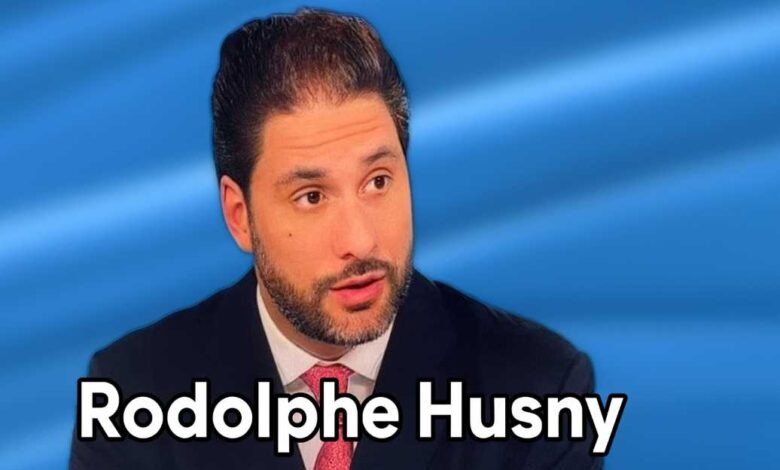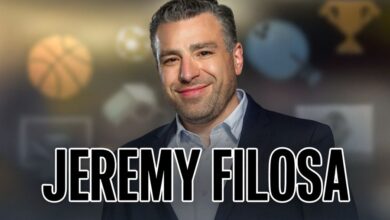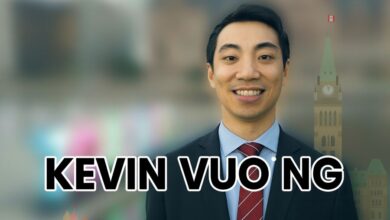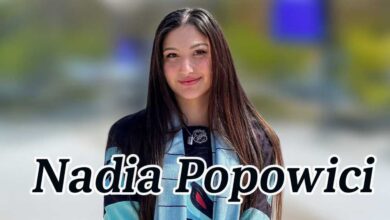Rodolphe Husny: A Powerful Political Strategist and Media Analyst Shaping Canadian Debate
The inspiring yet challenging journey of a conservative voice in Québec politics and international trade

Introduction
Rodolphe Husny is a name that resonates strongly in Québec’s political and media landscape. Known for his sharp insights, articulate voice, and experience in both government and communications, Husny has built a career that spans politics, international trade, consultancy, and media commentary. His path has been filled with both achievements and challenges, reflecting the dual nature of public life—where successes are celebrated but criticisms and obstacles are inevitable.
From his early professional years at PwC to his advisory role in the Harper Government, and later as a recognized media analyst, Rodolphe Husny has consistently positioned himself as a prominent figure bridging the gap between Canadian politics and international affairs. His ability to interpret complex political events and present them in a clear and engaging manner has made him a respected voice in Québec and across Canada.
Quick Bio of Rodolphe Husny
| Attribute | Details |
|---|---|
| Full Name | Rodolphe “Rudy” Husny |
| Nationality | Canadian (Québec) |
| Education | Administration & Accounting, HEC Montréal |
| Profession | Political strategist, media analyst |
| Notable Roles | Senior Advisor in Harper Government, Director of Communications (International Trade), Conservative candidate |
| Specialization | International trade, political strategy, media commentary |
Early Education and Foundation
Rodolphe Husny built his academic foundation at HEC Montréal, where he studied administration and accounting. His training in business and numbers gave him a strong analytical mindset, which later became crucial in his work on international trade and public policy. Having a background in both commerce and financial expertise positioned him uniquely to understand the economic aspects of governance.
This early preparation was not just about acquiring degrees; it was about shaping the intellectual curiosity and structured approach that would guide his career. Husny’s solid education allowed him to transition confidently between the corporate, political, and media worlds, demonstrating versatility and adaptability—qualities highly valued in leadership.
Professional Beginnings at PwC and Abroad
Before stepping fully into politics, Husny spent around five years as a Senior Associate, including at PwC (PricewaterhouseCoopers). This role exposed him to the corporate world, strategic consulting, and international business operations. During this period, he also gained global exposure by working in the Gulf region, where he collaborated with a large distribution group.
These early professional experiences broadened his worldview. Working abroad gave him first-hand knowledge of international markets, cross-cultural negotiations, and the importance of strategic planning in business. This practical exposure prepared him for the high-stakes world of political strategy and trade negotiations.
Entry into Canadian Politics
Rodolphe Husny’s political career began with his involvement in the Conservative Party of Canada. He ran as a Conservative candidate in the riding of Outremont during two federal elections. Although victory in electoral politics is never guaranteed, his candidacy itself reflected recognition of his political capabilities and potential as a young conservative leader.
Stepping into the public political arena meant facing both praise and criticism. Supporters valued his fresh perspective and ability to communicate complex issues, while opponents challenged his policies and affiliations. These campaigns built Husny’s resilience and further positioned him as a recognizable figure in Québec’s political environment.
Senior Roles in Government
Husny’s political journey reached its most impactful stage during the Harper Government (2011–2015). He served as a Senior Advisor, contributing directly to policy communication, strategy, and stakeholder engagement. He later took on the role of Director of Communications at the Ministry of International Trade.
In these roles, Husny became deeply involved in over 50 international trade missions, supporting Canada’s efforts to expand global partnerships. He contributed to the communication strategies surrounding major agreements such as:
-
The Canada–Europe Comprehensive Economic and Trade Agreement (CETA)
-
The Canada–South Korea Free Trade Agreement
-
The Trans-Pacific Partnership (TPP)
His behind-the-scenes role in shaping Canada’s trade narrative highlighted his ability to blend political messaging with economic realities, ensuring that Canada’s voice was heard in competitive global markets.
Transition to Media and Political Commentary
After years of working inside government, Husny transitioned into becoming a media commentator and political analyst. Today, he is a regular contributor to outlets such as Noovo Info and TVA Nouvelles, offering commentary on Québec politics, Canadian federal developments, and international affairs.
His media presence has allowed him to reach a wider audience, breaking down complex political strategies for ordinary citizens. By blending his insider knowledge with clear analysis, Husny has become a trusted commentator whose opinions are valued across Québec’s francophone media.
Recent Activities and Public Voice
In 2025, Rodolphe Husny remained highly active in political commentary. In September, he analyzed Québec’s cabinet reshuffle, highlighting which ministers might gain or lose portfolios. Earlier in August, he provided commentary on provincial by-elections, noting that the Parti Québécois was seen as representing change in the eyes of many voters.
These recent interventions show that Husny continues to influence political conversations not through holding office, but by shaping public understanding of events. His evolution from strategist to commentator reflects his adaptability and his desire to remain connected to political life in meaningful ways.
Legacy and Influence
Rodolphe Husny’s legacy is defined by his ability to bridge politics, international trade, and media commentary. His career demonstrates the dual nature of public service: on one hand, contributing directly to government strategy and trade diplomacy, and on the other, stepping back to analyze and explain politics for the public.
His positive contributions include his role in supporting Canada’s global trade negotiations, his articulate media presence, and his consistent engagement with issues affecting Québec and Canada. Yet, like many political figures, he has also faced the challenges of electoral losses and the scrutiny that comes with public commentary.
Ultimately, his impact lies in his persistence and relevance. Whether as a government advisor, a candidate, or a media analyst, Rodolphe Husny continues to influence the way Canadians and Québécois understand their political and economic environment.
Conclusion
Rodolphe Husny stands as a figure of both achievement and challenge, embodying the strengths and struggles of political life. His journey from HEC Montréal to PwC, from trade missions to television studios, reflects a life dedicated to shaping Canadian politics and public understanding.
By balancing strategy with communication, and expertise with accessibility, Husny has left a distinct mark on the fields he has touched. His story is far from over, but his contributions already showcase the powerful role that committed political strategists and commentators can play in Canada’s democratic conversation.
Frequently Asked Questions (FAQ)
Who is Rodolphe Husny?
Rodolphe Husny is a Canadian political strategist, former senior advisor in the Harper Government, and a media commentator active in Québec politics and international trade analysis.
What is his educational background?
He studied Administration and Accounting at HEC Montréal, equipping him with business and financial expertise.
What roles did he hold in government?
He served as Senior Advisor in the Harper Government (2011–2015) and as Director of Communications at the Ministry of International Trade.
What is his current profession?
He works as a political analyst and media commentator, contributing to major Québec outlets like Noovo Info and TVA Nouvelles.
What is his legacy in Canadian politics?
His legacy lies in his contribution to Canada’s trade negotiations, his candidacy for the Conservative Party, and his ongoing influence in shaping political conversations through media commentary.



